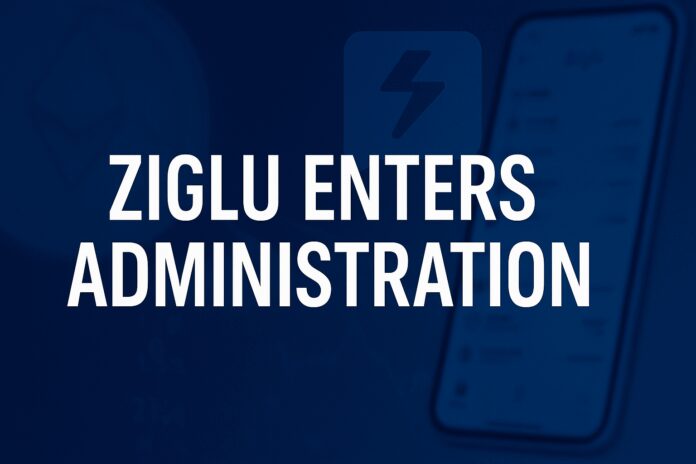Ziglu, a UK-based crypto and digital banking platform once viewed as a rising challenger in the neobank space, has officially entered administration. As reported by Finextra, the move follows a turbulent few years marked by failed acquisitions, regulatory friction, and shifting consumer trust in crypto-fintech hybrids.
The fall of Ziglu reflects not just a single company’s missteps, but the broader difficulty of building sustainable business models at the intersection of banking and crypto — especially under intensifying regulatory scrutiny.
The Rise: From Challenger Bank to Crypto Gateway
Launched in 2020 by former Starling Bank CTO Mark Hipperson, Ziglu positioned itself as a bridge between traditional finance and digital assets, offering users:
- A UK e-money account
- Access to crypto trading (Bitcoin, Ethereum, etc.)
- International payments
- Debit card functionality
It initially capitalized on the momentum of the crypto bull run and growing dissatisfaction with incumbent banks, raising millions in crowdfunding rounds and securing early consumer interest.
The Stalling Point: Revolut Deal Collapse
In 2022, Revolut announced plans to acquire Ziglu, aiming to expand its crypto capabilities and banking footprint in the UK. However, the deal quietly collapsed in 2023 amid shifting market conditions and regulatory uncertainties.
This failure to exit left Ziglu exposed: its burn rate outpaced revenues, and its regulatory capital position weakened without the backing of a larger parent. The company struggled to pivot from a growth narrative to a sustainability-focused one.
Administration Filing: A Reality Check
In July 2025, Ziglu formally entered administration under insolvency firm BDO LLP. According to filings, the decision was made “to protect the interests of customers and creditors” while the company’s assets and obligations are reviewed.
Key concerns include:
- Safeguarded funds: Will user fiat balances and crypto holdings be fully recoverable?
- Regulatory obligations: Ziglu was an FCA-registered cryptoasset firm — administrators must now ensure all compliance requirements are met.
- Business continuity: The platform is expected to remain operational temporarily, but services may be frozen or restricted.
Wider Lessons: The Limits of “Banking + Crypto”
Ziglu’s collapse offers a number of cautionary insights:
- Unclear Regulatory Positioning
Operating as both a regulated e-money institution and a crypto trading platform often means falling into a compliance no-man’s-land. Firms must navigate fragmented licensing regimes, which add cost and complexity. - No Clear Monetization Model
Ziglu, like many crypto-fintechs, struggled to generate sustainable fee income without overreliance on volatile crypto trading volumes — which plummeted during the bear market. - User Trust is Fragile
The failure of similar platforms (e.g. Wirecard, Celsius) has made users skittish. Even a hint of instability can spark mass withdrawals and reputational damage.
Conclusion: Consolidation is Coming
Ziglu’s fate is not unique — it is emblematic of a wave of consolidation, collapse, or absorption that is likely to accelerate among small-to-mid crypto-fintech firms in 2025.
Survival in this market now demands:
- Strong capital reserves
- Regulatory resilience
- Clear unit economics
- A core product that solves a real problem — beyond “buy crypto with an app”
For all the talk of innovation, the basics still matter. Ziglu’s rise and fall is a reminder that the road from prototype to trusted financial institution is long, expensive, and unforgiving.




